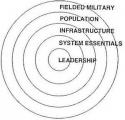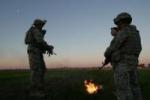Light bathroom reading....
http://www.d-n-i.net/dni/2009/10/21/...d-love-nsc-68/
A little shameless self-promotion.I'd appreciate any constructive feedback.
Essay primarily focuses on a way ahead for the US Government in Central Asia by dissecting flawed political-military strategic assumptions to date. It then ties this together to a new understanding of geopolitics and global challenges to generate a new grand strategy by modernizing Kennan’s writings for the 21st century.
The essay covers four main points:
1) That although GEN McChrystal’s assessment calls for one of two courses of action in Afghanistan, there is a third, more suitable course not being debated;
2) That current plans and concepts developed after 9/11 are, in fact, causing many of the national security issues we face now and will in the future;
3) Argument against the conventional wisdom that Afghanistan or wars like it are a vital national interest (as a point to formulate a subsequent US grand strategy);
4) Proposal and recommendations for a new grand strategy.
The views expressed are my own and do not reflect the official policy or position of the Department of Defense or the U.S. Government.









 Ahhh it might be just a little bit to idealistic.....but you are thinking differently. So do you have anything else written?
Ahhh it might be just a little bit to idealistic.....but you are thinking differently. So do you have anything else written?
 ) between operational planning and tactical execution.
) between operational planning and tactical execution. 



Bookmarks